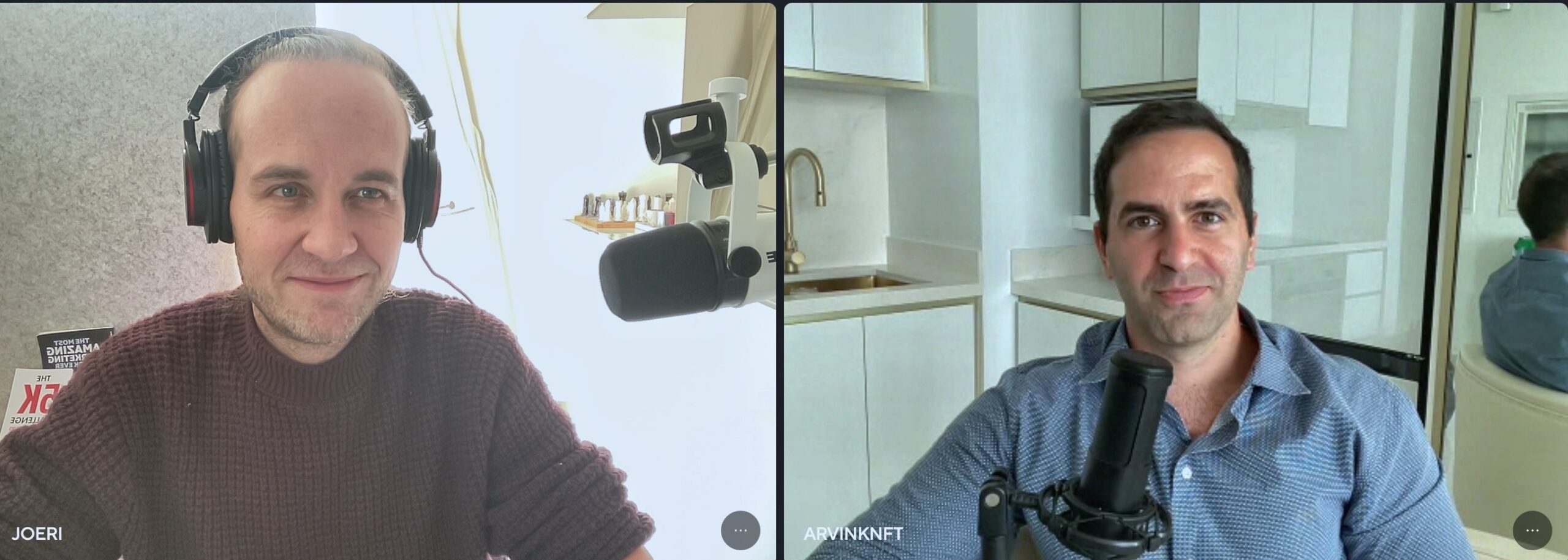Today, I’m joined by fellow Sky Club member Louise Ivan, the CEO and Co-founder of Ryder—a hardware wallet that simplifies your Web3 journey.
Before creating Ryder to simplify one’s journey in web3, Louise was the Growth Lead at Stacks Foundation (STX), leading community and token growth. Currently, STX is the top web3 project on Bitcoin.
As the world of Web3 continues to evolve, businesses and marketers need to understand the trends shaping the space, the importance of building strong communities, and how to engage with their audience effectively. In this podcast, host Joeri Billast chats with Louise Ivan Valencia Payawal, the CEO and Co-founder of Ryder—a hardware wallet that simplifies your web3 journey. Louise shares insights into the rapidly changing landscape of Web3, the role of Ryder in bridging the physical and virtual worlds, and the trends he's most excited about.
The Importance of Community in Web3
Louise highlights that community is a crucial aspect of any successful Web3 project. While each protocol or project might have different metrics for measuring community success, sales and conversion rates are often a significant factor. According to him, some Web3 projects focus on the number of applications built on their platform, while others prioritize the token price and market cap.
One of the challenges in building a strong community is defining the metrics for success. Louise emphasizes the need to understand what drives value for the specific project or protocol and tailoring community-building efforts towards those goals. For Ryder, as an e-commerce hardware company, their primary measure of success is sales and conversion rates.
Engaging with Your Audience in Web3
Understanding your audience and engaging with them effectively is key to building a strong community. Web3 enables individuals to exit and enter any protocol, project, or organization instantly—a stark contrast to the platform lock-ins associated with Web2. Louise recommends focusing on community-building strategies that resonate with the core proposition of decentralization and self-sovereignty.
He also points out the importance of simplifying complex tasks and improving usability to make it easier for everyday users to participate in the Web3 space. A significant part of this effort involves reducing the friction associated with user onboarding and wallet creation.
Trends and the Future of Web3
Looking ahead, Louise is excited about several trends in Web3. Last year, NFTs (non-fungible tokens) were a major craze, with big brands looking to capitalize on the trend through activations and collaborations. However, some brands entered the space without fully understanding the intricacies of NFTs and ended up underperforming.
Louise believes that the real game-changer will be advancements in end-user applications, with many builders focusing on improving account abstraction and user onboarding. He sees a bright future for the space in the next three years, with more sophisticated tools and solutions becoming available to streamline the user experience.
How Ryder is Shaping the Web3 Space
Ryder is positioned to play a pivotal role in the convergence of the physical and virtual worlds. With a blend of hot and cold wallet capabilities, Ryder offers a hybrid solution for users looking to navigate the metaverse and the traditional financial ecosystem seamlessly.
By focusing on usability and simplifying complex tasks, Ryder aims to cater to the needs of both new and experienced Web3 users, making the journey into the decentralized world more accessible than ever.
Conclusion
As the world of Web3 continues to evolve, businesses and marketers need to adapt to the changing landscape, focusing on building strong communities, engaging with their audience effectively, and staying informed about emerging trends. By understanding the importance of usability and simplifying complex tasks, companies like Ryder are playing a crucial role in driving adoption and shaping the future of decentralization.
With a wealth of experience in the space, Louise Ivan offers valuable insights into the world of Web3, emphasizing the importance of community-building, usability, and staying agile in a rapidly changing environment. As the metaverse and digital assets become increasingly popular, the opportunities for businesses to capitalize on this new frontier are growing exponentially.

Louise Ivan, CEO and Co-founder of Ryder
KEY HIGHLIGHTS (see clickable version on www.cmo-stories.com)
[00:50] Who is Louise Ivan?
[01:23] What motivated you to enter the Web3 space and how did you come up with the idea for Ryder?
[04:22] What's the origin story of the concept behind Ryder?
[06:28] What are some of the challenges that you're seeing or strategies that you have been applying for marketing your business?
[10:14] Is there some kind of success story or some use case that you can share with us?
[14:04] What did you mean by face-to-face transaction?
[15:11] What is your vision on transactions being done in the metaverse where you know the physical world and the virtual world come together? And how do you see Ryder in this convergence?
[16:41] How are you engaging with your audience?
[17:52] What would you say if they asked you if there was one indicator to measure successful community or does it depend on the stage that you're in? Or what would you answer to that?
[20:30] What are trends that you are seeing for Web3 in the future that you are most excited about? And how do you see these new trends in web three impacting marketing?
[24:11] Where is the best place for people to connect with you?
NOTABLE QUOTES
"Community is such an essential aspect of any successful Web3 project, and each project or protocol might have different metrics for measuring community success, from sales and conversion rates to the number of applications built on their platform or token price and market cap." – Louise Ivan
"In the world of Web3, it's important to focus on community-building strategies that resonate with the core proposition of decentralization and self-sovereignty, and it's crucial to understand your audience and engage with them effectively." – Louise Ivan
"I think the real game-changer in Web3 will be the advancements in end-user applications, with many builders focusing on improving account abstraction and user onboarding, leading to a bright future for the space in the next three years." – Louise Ivan
"Rider aims to play a pivotal role in the convergence of the physical and virtual worlds, offering a hybrid solution for users looking to navigate the metaverse and the traditional financial ecosystem seamlessly by focusing on usability and simplifying complex tasks." – Louise Ivan
"As the world of Web3 continues to evolve, businesses and marketers need to adapt to the changing landscape, staying informed about emerging trends, and focusing on building strong communities, engaging with their audience effectively, and understanding the importance of usability and simplifying complex tasks." – Joeri Billast
MENTIONED RESOURCES
Ryder - a hardware wallet that simplifies the user's web3 journey. Louise Ivan, the podcast guest, is the CEO and Co-founder of Ryder. https://www.ryder.id/
Stacks Foundation (STX) - the top web3 project on Bitcoin. Louise previously worked as the Growth Lead at Stacks Foundation, leading community and token growth.
Ethereum - a decentralized, open-source blockchain system featuring smart contract functionality, mentioned in the context of its proposal focusing on usability improvements.
Solana, Cosmos, and Bitcoin - mentioned as examples of other prominent protocols in the blockchain space.
Puma - a big brand mentioned for its successful NFT activation and collaboration with well-known NFT collections.
CONNECT
Twitter: https://twitter.com/louiseivanvp






